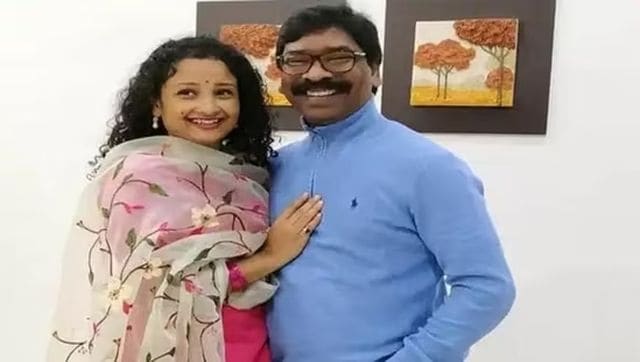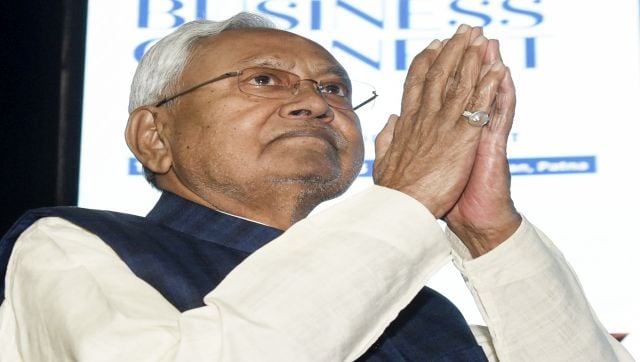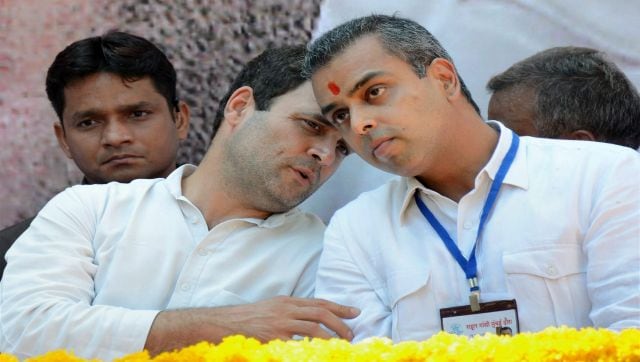In the run-up to the Uttar Pradesh Assembly elections, a distant cousin of mine — an old Congress loyalist — who lives in a small town in eastern Uttar Pradesh, called me to make a “confession”, as he put it. He said he planned to vote for the BJP for the first time in his life but had not yet told anyone for fear of being “ostracised” by his community members. The reason, he explained, why he was leaning towards the BJP was simple: The Congress had no chance of winning and he didn’t want to “waste” his vote once again; and the candidates fielded by the two other main non-BJP parties (the Samajwadi Party and the Bahujan Samaj Party) had bad reputations.
Sounding almost conspiratorial, he said: “Look just between you and me, I’m seriously thinking of voting BJP.”
A few weeks later, however, I got a WhatsApp message from him saying that finally the family and community pressure proved too much and he was “forced” to vote for SP. “I simply couldn’t withstand the pressure in the end. I didn’t want to end up a pariah in my own family,” he wrote.
His story can be read in two ways. On the one hand, it confirms the vast, seemingly unbridgeable, gulf between Muslims and the BJP and the underlying mutual mistrust. But there’s also an optimistic aspect to it: It shows that despite this there are Muslims, even if they are only a minuscule minority, who are privately coming round to the view that Muslims cannot remain in a state of permanent confrontation with the BJP, especially given its almost complete dominance of the country’s political landscape as proved once again by its victory in three of the five states which went to the polls recently.
In Uttar Pradesh, where Muslims have particularly high stakes, the BJP roared back to power despite Opposition efforts to cobble up a united front against it. Yogi Adityanath became only the fifth chief minister in the long history of UP elections to win a second consecutive term. The results again exposed the impotence of rival “secular” groups that Muslims have chosen to put their faith in.
As someone who has always argued in favour of a Muslim-BJP dialogue, I see people like my cousin as a harbinger of a ray of hope. The current standoff is simply not sustainable. Apart from its impact on democratic polity, it’s bad for Hindu-Muslim relations which despite occasional lows have historically remained largely cordial. Recently, I got into an argument with an old (Hindu) friend on Facebook after he suggested that what was happening to Muslims was simply a case of the empire striking back. But after a few testy exchanges, he wrote: “Allahu-Akbar... Jai Sri Ram... Hindus and Muslims have centuries-old, shared heritage in India... In [the] coming years, the good old times will return. This is my prophecy.”
The episode showed that for all the apparent hostility, there’s still a grudging acknowledgement of what my friend called “centuries-old, shared heritage”. And offers a glimmer of hope that all is not yet lost. For any mainstream community, especially one the size of the Muslim community (200 million plus, and growing) it’s tactically short-sighted to withdraw itself into a shell, and refuse to engage with the dominant political force no matter how aggrieved it feels. And, to be fair, Muslims do have legitimate grievances as they struggle with the fallout of Right-wing majoritarianism premised on the idea of a Hindu-India in which non-Muslims take a back seat.
But here’s the thing. Precisely because the stakes are so high for Muslims who are facing an existential crisis, it’s all the more important for them to try and find a way out of it even if it means making difficult compromises. The fact is that the current impasse is hurting them — not the BJP and it’s therefore in their own interest to open a dialogue. There’s an old crude saying that you cannot afford to make enemy of the bigger fish in the pond.
The Muslim response to the majoritarian challenge has tended to more emotional than pragmatic. And their liberal and secular friends have not helped by talking up their sense of grievance, exaggerating the “threat” to their security, and effectively discouraging them from talking to the “enemy”, while presenting themselves as saviours even as they struggle to get their act together.
The whole Muslim-BJP and Hindu-Muslim issue has got bogged in a meandering debate on secularism versus communalism. Conflating the two has led to a deepening of the sectarian divide, unleashing a politically charged culture war. What Muslims need is a hard-headed pragmatic approach. Which means we stop dreaming about a secular utopia and endlessly arguing about the past — and, instead, try and make the best of a bad situation.
Politically isolated and facing an uncertain future, Muslims have few options. The question is whether they want to prolong the agony or try and find a dignified way out of it. There’s an urgent need to seek a deal on the basis of common citizenship and shared history rather than faith — a settlement underpinned by hard realism. The effort should be to try and strike a balance between minority rights and the majority community’s sensitivities, which it believes have been ignored in the name of secularism.
For any dialogue to succeed, the Hindu sense of grievance will have to be addressed. Which could even involve recognising Hinduism as India’s official religion. There’s a mistaken notion that the only alternative to a secular state is a theocracy. A state can have an officially recognised religion and yet remain secular in practice by treating all citizens as equal and making sure that their religious and civil rights are protected by law, as in many Western liberal democracies including Britain where the state is Christian, but government practices are secular. Exploring a mutually acceptable framework that would be seen to be fair to everyone without abandoning the essential elements of a secular society can be a good starting point for a dialogue.
Some might regard this as “surrender” but it will actually allow Muslims to bow out at a time of their own choosing rather than have a solution imposed on them. In exchange, they can insist on constitutional/legal guarantees around protection of Muslim rights as equal citizens of India.
Let’s be clear: There’s no Godot coming to our rescue. Muslims are on their own and time is running out. But, of course, it takes two to tango. For any Muslim initiative to take off, the BJP and the RSS will too need to reach out to them — starting with reining in the bullies operating in the name of defending Hinduism and Hindu culture. It will take the task of moderate Muslims much easier in persuading the community to sue for peace.
The writer’s book on Hindu-Muslim relations is due out soon. Views expressed are personal.
Read all the Latest News, Trending News, Cricket News, Bollywood News,
India News and Entertainment News here. Follow us on Facebook, Twitter and Instagram.
March 16, 2022 at 11:06AM











No comments:
Post a Comment